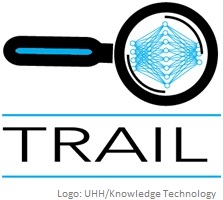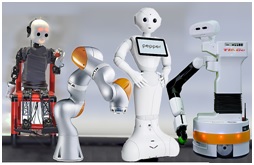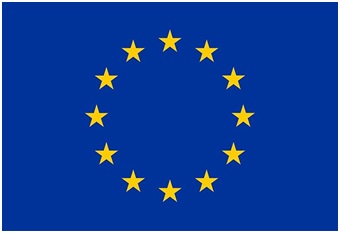TRAIL
TRAIL: TRAnsparent, InterpretabLe Robots
TRAIL is a new Doctoral Network project as Marie Skłodowska-Curie Action funded by the European Commission 1.3.2023-28.2.2027.
Overview

TRAIL strategically focuses on a novel, highly interdisciplinary and cross-sectorial research and training programme for a better understanding of transparency in deep learning, artificial intelligence and robotics systems. In order to train a new generation of Early Stage Researchers (ESR) to become experts in the design and implementation of transparent, interpretable neural systems and robots, we have built a highly interdisciplinary consortium, containing expert partners with long-standing expertise in cutting-edge artificial intelligence and robotics, including deep neural networks, computer science, mathematics, social robotics, human-robot interaction and psychology. In order to build transparent robotic systems, these new ESR researchers need to learn about the theory and practice of the principles of (1) internal decision understanding and (2) external transparent behaviour. Since the ability to interpret complex robotic systems needs highly interdisciplinary knowledge, we will start, on the decision level, to interpret deep neural learning and analyse what knowledge can be efficiently extracted. At the same time, on the behaviour level, the disciplines of human-robot interaction and psychology will be key in order to understand how to present the extracted knowledge as behaviour in an intuitive and natural way to a human user to integrate the robot into a cooperative human-robot interaction.
 A scaffolded training curriculum will guarantee that the ESRs have not only a deep understanding of both research areas, but experience optimal skill training to be fully prepared for a successful research career in academia and industry. The importance and need of this research for the industry is clearly visible with the full commitment of 7 leading European and world-wide-operating robotics companies that together cover the majority of Europe’s robot market and a broad spectrum of AI applications.
A scaffolded training curriculum will guarantee that the ESRs have not only a deep understanding of both research areas, but experience optimal skill training to be fully prepared for a successful research career in academia and industry. The importance and need of this research for the industry is clearly visible with the full commitment of 7 leading European and world-wide-operating robotics companies that together cover the majority of Europe’s robot market and a broad spectrum of AI applications.
PARTICIPATING ORGANISATIONS
- Universität Hamburg, Knowledge Technology Research Group, Stefan Wermter (coordinator)
- University of Manchester, Machine Learning and Robotics Group, Angelo Cangelosi (co-coordinator)
- University of Naples Federico II, Interdepartmental Center for Advances in Robotic Surgery, Silvia Rossi
- Agencia Estatal Consejo Superior de Investigaciones Científicas, Institut de Robòtica I Informàtica Industrial, Guillem Alenyà
- Comenius University in Bratislava, Centre for Cognitive Science, Igor Farkaš
- University of Padova, Department of Mathematics - "Tullio Levi-Civita", Alessandro Sperduti
- Centre National de la Recherche Scientifique, Laboratoire d'Analyse et d'Architecture des Systèmes, Thierry Simeon
- PAL Robotics, R&D Division, Séverin Lemaignan
- SoftBank Robotics Europe, Marine Chamoux
- United Robotics Group, Thomas Hähn
- Hamburg Center of Applied Aeronautical Research, Leonid Lichtenstein
- Seed Cognitiva – Robotics Innovation Lda, Pedro Ramilo
- Honda Research Institute Europe GmbH, Thomas Weisswange
- IT+Robotics SRL, Stefano Tonello
- INSA Toulouse, Thierry Simeon
 Horizon Europe (HORIZON)
Horizon Europe (HORIZON)Marie Skłodowska-Curie Actions
